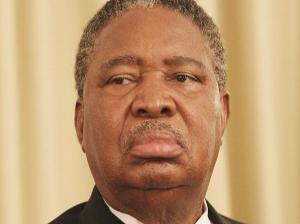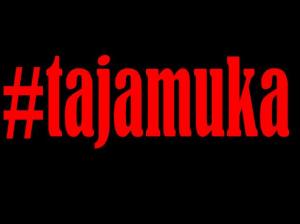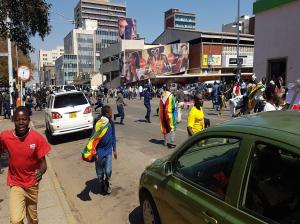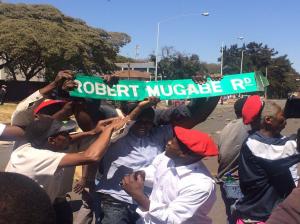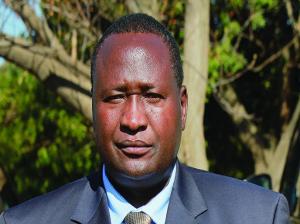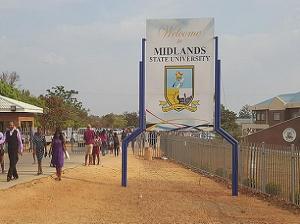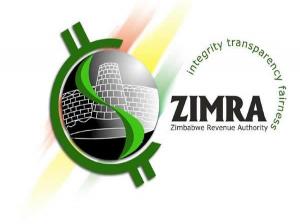Homophobic attacks in Africa reaching dangerous levels says Amnesty International

Published: 2013 June 25 12:23:47 (5251 Views)
Homophobic attacks and harassment across sub-Saharan Africa are becoming more visible, indicating that homophobia is reaching dangerous levels, Amnesty International have said.
Criminalization of same-sex conduct in sub-Saharan Africa looks at how "homosexual acts" are being increasingly criminalized across Africa as a number of governments seek to impose draconian penalties or broaden the scope of existing laws, including by introducing the death penalty.
"These attacks – sometimes deadly - must be stopped. No one should be beaten or killed because of who they are attracted to or intimately involved with," said Widney Brown, Amnesty International's director of Law and Policy.
"In too many cases these attacks on individuals and groups are being fuelled by key politicians and religious leaders who should be using their position to fight discrimination and promote equality."
Homosexuality, often characterized as "unnatural carnal acts" or "acts against the order of nature", is currently a crime in 38 countries in sub-Saharan Africa.
In the last five years South Sudan and Burundi have introduced new laws criminalising same-sex sexual conduct.
Uganda, Liberia and Nigeria all currently have Bills seeking to increase existing penalties pending before Parliament.
Individuals interviewed by Amnesty International spoke of their daily struggle to survive discrimination and threats. The report contains specific cases from Uganda, Kenya, South Africa and Cameroon.
In Cameroon, people are regularly arrested after being denounced to the authorities as being gay or lesbian - based on their appearance or conjecture, rather than evidence.
Some individuals accused have been imprisoned for three years without trial or charge.
Even in countries where criminalization laws are not enforced, their existence provides opportunities for abuse, including blackmail and extortion, by police and members of the public.
In Kenya, individuals told Amnesty International that sometimes the police threaten to arrest them under provisions in the penal code related to same-sex relations in order to elicit a bribe.
Extortionists also use the existence of these laws to demand money or goods in exchange for not revealing real or even made-up private details to the media, community or police.
"It is time that African states stopped demonizing individuals because of their sexual orientation and gender identity. Human rights are about the dignity and equality of all people," said Widney Brown.
- Amnesty International
Criminalization of same-sex conduct in sub-Saharan Africa looks at how "homosexual acts" are being increasingly criminalized across Africa as a number of governments seek to impose draconian penalties or broaden the scope of existing laws, including by introducing the death penalty.
"These attacks – sometimes deadly - must be stopped. No one should be beaten or killed because of who they are attracted to or intimately involved with," said Widney Brown, Amnesty International's director of Law and Policy.
"In too many cases these attacks on individuals and groups are being fuelled by key politicians and religious leaders who should be using their position to fight discrimination and promote equality."
Homosexuality, often characterized as "unnatural carnal acts" or "acts against the order of nature", is currently a crime in 38 countries in sub-Saharan Africa.
In the last five years South Sudan and Burundi have introduced new laws criminalising same-sex sexual conduct.
Uganda, Liberia and Nigeria all currently have Bills seeking to increase existing penalties pending before Parliament.
Individuals interviewed by Amnesty International spoke of their daily struggle to survive discrimination and threats. The report contains specific cases from Uganda, Kenya, South Africa and Cameroon.
In Cameroon, people are regularly arrested after being denounced to the authorities as being gay or lesbian - based on their appearance or conjecture, rather than evidence.
Some individuals accused have been imprisoned for three years without trial or charge.
Even in countries where criminalization laws are not enforced, their existence provides opportunities for abuse, including blackmail and extortion, by police and members of the public.
In Kenya, individuals told Amnesty International that sometimes the police threaten to arrest them under provisions in the penal code related to same-sex relations in order to elicit a bribe.
Extortionists also use the existence of these laws to demand money or goods in exchange for not revealing real or even made-up private details to the media, community or police.
"It is time that African states stopped demonizing individuals because of their sexual orientation and gender identity. Human rights are about the dignity and equality of all people," said Widney Brown.
- Amnesty International
You May Like These Videos
Comments
There are no comments.
Get Zim Metro Updates Alerts
Big Reads

Schoolgirl drops out after continuous 'sexual abuse' by teacher
by Staff Reporter | 2019 August 13 07:42:33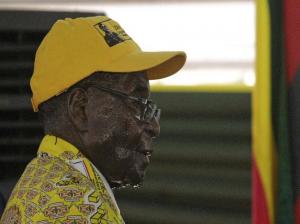
Mugabe Knows Nothing About The Zimbabwe Constitution: MP
by Staff Reporter | 2016 October 01 08:12:02
Zim's Protesting Graduates Risk Losing Degrees For Expressing Anger Against Mugabe
by Staff Reporter | 2016 October 01 07:57:08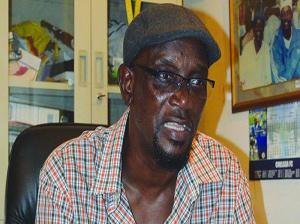
Troubled Harare Giants Dynamos Falls Into Another Deep Crisis
by Own Correspondent | 2016 October 01 07:49:17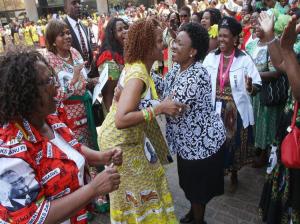
Grace Mugabe Grovels At Mnangagwa, Says I Did Not Ask Ubaba To Fire You
by Staff Reporter | 2016 October 01 07:31:48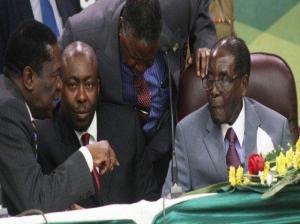
Mugabe Attacks Mawarire, Claims The Exiled Pastor Failed To Divide Zimbabwe
by Staff Reporter | 2016 October 01 07:19:13
Shock As Local Bank Denies 'Rich' Mugabe's Son Heifty Credit
by Own Correspondent | 2016 September 30 19:14:54
Trouble For Police Officers Who Have Been Mercilessly Bludgeoning Protesters
by Staff Reporter | 2016 October 01 07:20:19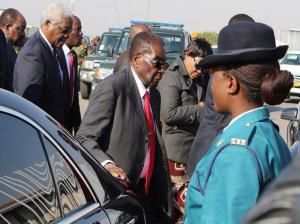
Mugabe "Home Coming" And "Thank You" Rally On Cards
by Own Correspondent | 2016 September 23 06:48:24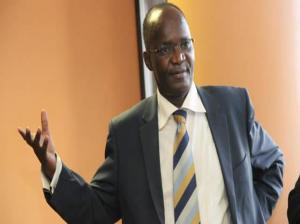
Prof Moyo Was Dumped By Western Embassies, Claims Mutsvangwa
by Staff Reporter | 2016 September 22 10:08:07
Broke RBZ Tracks Down Zimbabweans Living Outside The Country Over Taxi
by Staff Reporter | 2016 September 22 09:16:20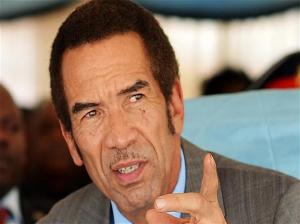
You Are Too Old To Lead, Aging Zim President Mugabe Told
by Own Correspondent | 2016 September 22 07:19:25
Anti-Corruption Commission Loses Property In Failed Probe
by Own Correspondent | 2016 September 20 03:18:19
SHOCKING:14 Year Old HIV-Positive Boy Rapes 7 Pupils
by Own Correspondent | 2016 September 20 00:04:55

 WATCH: Victims Narrate Ordeal After Being Clobbered By Riot Cops
WATCH: Victims Narrate Ordeal After Being Clobbered By Riot Cops FLASHBACK: Morgan Tsvangirai Won't Resign Despite Illness
FLASHBACK: Morgan Tsvangirai Won't Resign Despite Illness  Police Violently Beat Harare Protesters
Police Violently Beat Harare Protesters  Zimbabwean Man Who Was Shot By Tswana Employer Appeals For Help
Zimbabwean Man Who Was Shot By Tswana Employer Appeals For Help

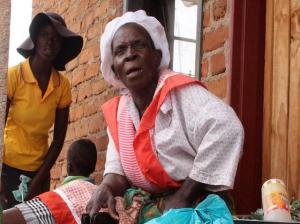


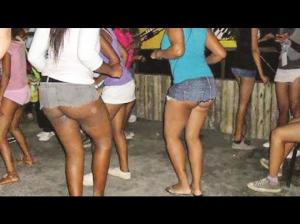



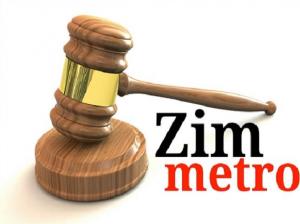
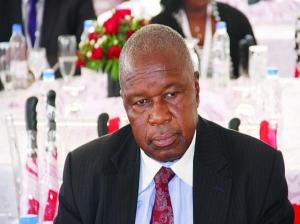

.jpg)
